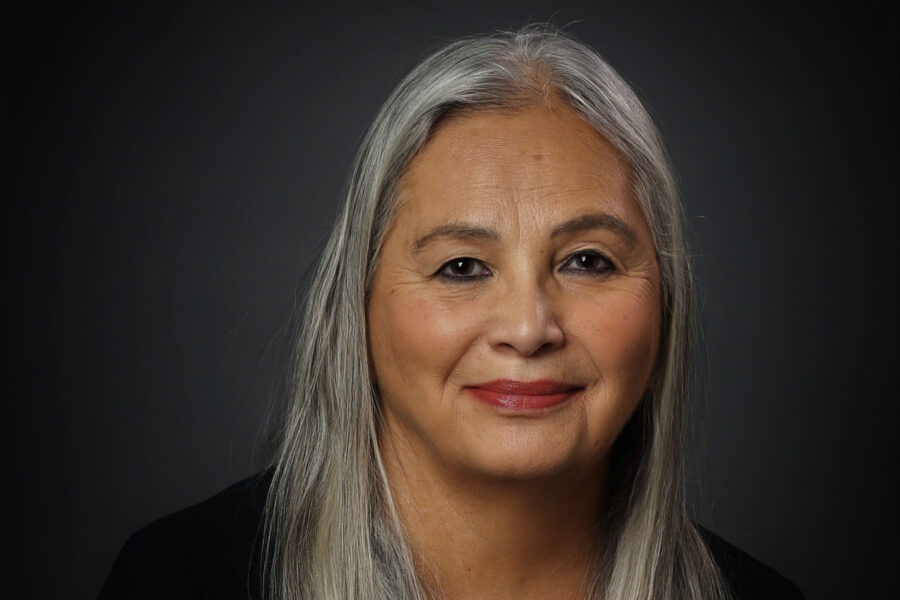Denise Lajimodiere, PhD, Anishinaabe educator, author and founder of the National Native American Boarding School Healing Coalition, calls the history of American Indian boarding schools one of the most heartbreaking secrets in the country.
Dr. Lajimodiere, author of “Stinging Rosaries: The History, the Unforgiveable and the Healing of Northern Plains American Indian Boarding School Survivors,” spoke at UNMC in late November on the importance of sharing Native American experiences and their history with boarding schools.
Begun as a response to the increasing cost of the American Indian Wars, the American Indian boarding school was introduced by Lieutenant Colonel Richard Henry Pratt, who founded the first boarding school, Carlisle Indian Industrial School in Carlisle, Pennsylvania, Dr. Lajimodiere said.
Pratt is known for using the phrase “kill the Indian, save the man” in reference to the forced assimilation of Native Americans to the Western values of the time. More than 408 federally and privately funded residential schools were established across the United States.
Dr. Lajimodiere spoke of the effects on her parents of growing up in the schools and how their experiences have had lasting generational repercussions. Like many others, her parents experienced abuse that became inherited trauma, she said, adding that the 1920s is often referred to as the stolen generation, as Indigenous children were routinely separated from their families, abused and stripped of their cultural identities in boarding schools.
Please note: The following video is a presentation on the history of Native American boarding schools in the Native culture. While sensitive content is presented throughout, it is an important part of history to share and to honor Native American Heritage Month.
Dr. Lajimodiere said she was never told “I love you” or hugged as a child, and she called her father’s unresolved grief “his soul wound.”
Her parents’ experiences and their lasting impact, she said, prompted her to write “Stringing Rosaries,” which also draws from interviews of boarding school survivors who also experienced loss, abuse, reduced education and severe health issues. Some of the interviewees described the schools as somewhere between a death camp and a dungeon, she said.
While Canada has issued a formal apology and begun allocating resources, U.S. Secretary of the Interior Deb Haaland, the first Native American to hold that position, only in 2021 announced a review of these policies.
“There is nothing in the U.S. to help with healing,” Dr. Lajimodiere said.
In reaction to the lack of resources, Dr. Lajimodiere founded the National Native American Boarding School Healing Coalition in 2012. In 2021, she helped introduce the Truth and Healing Commission on Indian Boarding School Policies Act to address and understand the ongoing trauma created by the U.S Indian Boarding School policy.
Native nations also are seeing a resurgence in going back to their culture, tribal languages and ceremonies — all efforts toward what Dr. Lajimodiere calls “the truth telling.”
“I aways try to end with hope. It starts with the family, me individually,” Dr. Lajimodiere said.

Thank you for sharing these stories!